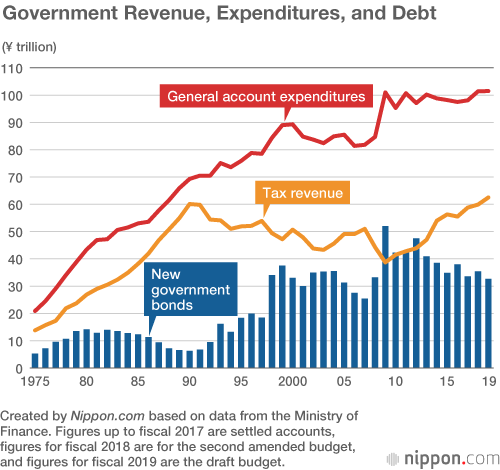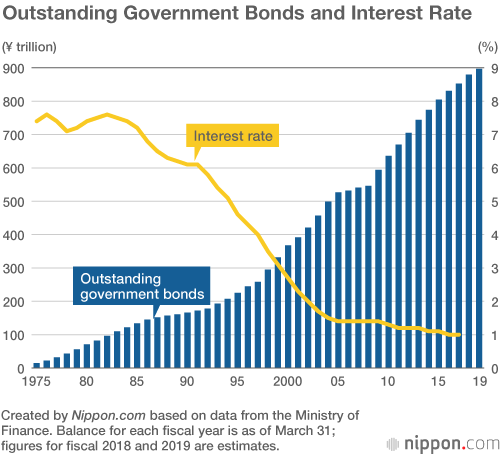
Japan’s Consumption Tax Increase Not Enough to Keep Up with Swelling Budget
Economy- English
- 日本語
- 简体字
- 繁體字
- Français
- Español
- العربية
- Русский
The cabinet of Prime Minister Abe Shinzō recently approved a draft budget for fiscal 2019 totaling ¥101.46 trillion. Topping ¥100 trillion for the first time, the record-setting budget includes stimulus measures meant to offset the effects of a scheduled hike in the consumption tax.
Japan’s consumption tax is set to increase from 8% to 10% in October 2019 and is expected to boost tax revenue to an all-time high of ¥62.50 trillion. The last time tax revenue was at a similar level was in 1990 when the government took in ¥60.11 trillion. However, the rise in revenue is coupled with an anticipated fall in consumption due to the tax increase. To lessen the impact the government intends to offer incentives like rebates for cashless purchases and shopping vouchers for low-income households.
In addition to securing ¥6.30 trillion in non-tax revenue from such sources as the Deposit Insurance Corporation of Japan, the government will also issue ¥32.66 trillion in new government bonds.

Until the 1980s tax revenue and expenditures did not diverge greatly and the amount of national bonds issued each fiscal year did not exceed ¥15 trillion. However, Japan’s revenue situation deteriorated after the collapse of the bubble economy as the government implemented fiscal stimulus measures and reduced taxes. Looking to fill the budget gap authorities ramped up the issuance of bonds. Although tax revenue began to rebound by around 2010, growing government expenditures has made Japan dependent on issuing bonds.
The government has steadily increased the amount of bonds it issues each year, with the quantity of outstanding bonds expected to reach ¥897 trillion by the end of fiscal 2019. This is roughly equivalent to 15 years of tax revenue or equal to each person in Japan shouldering around ¥7.13 million in debt. The government has worked to keep its debt situation under control by holding interest rates extremely low as increasing rates would be catastrophic to the country’s already battered fiscal situation.

(Translated from Japanese. Banner photo © Pixta.)